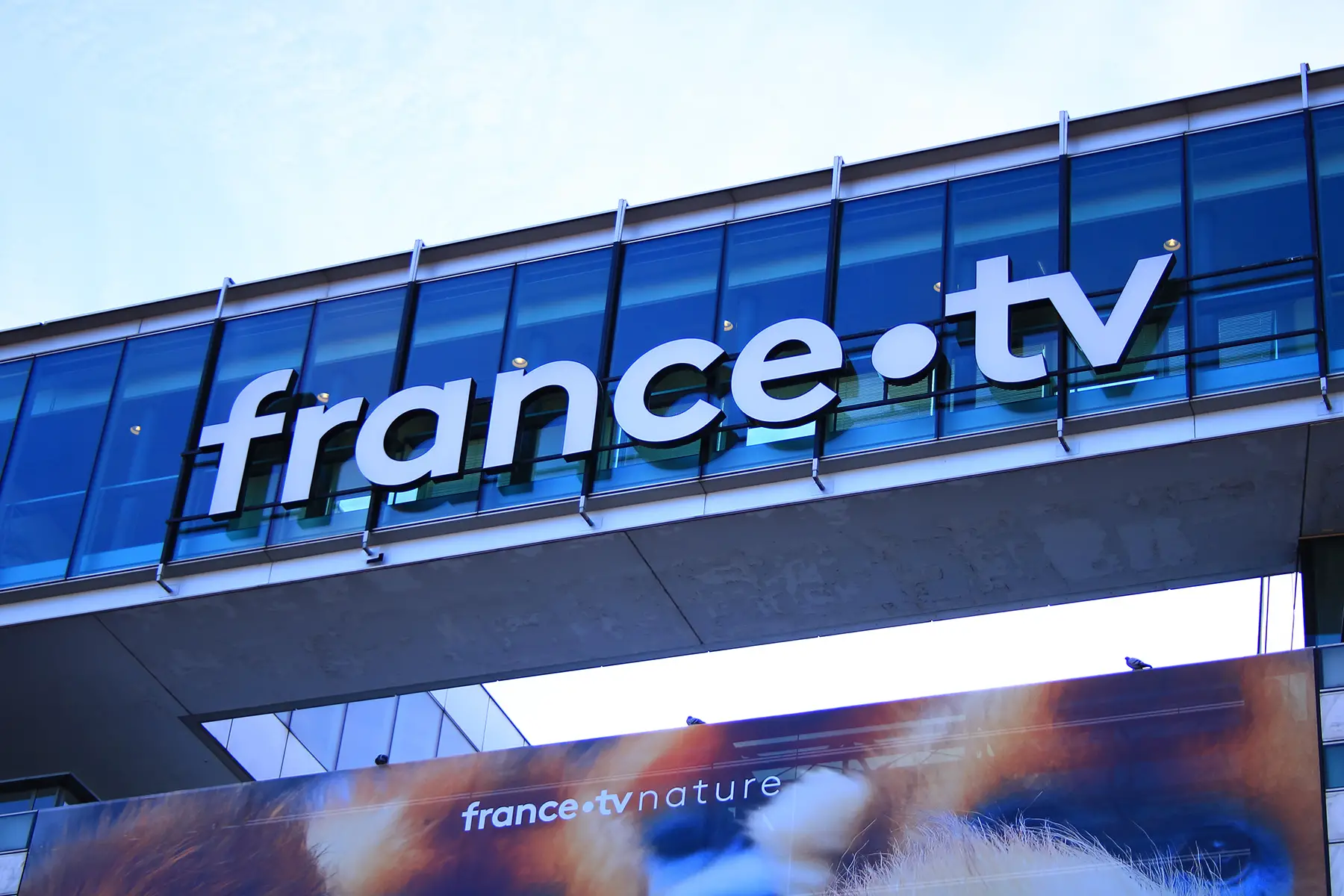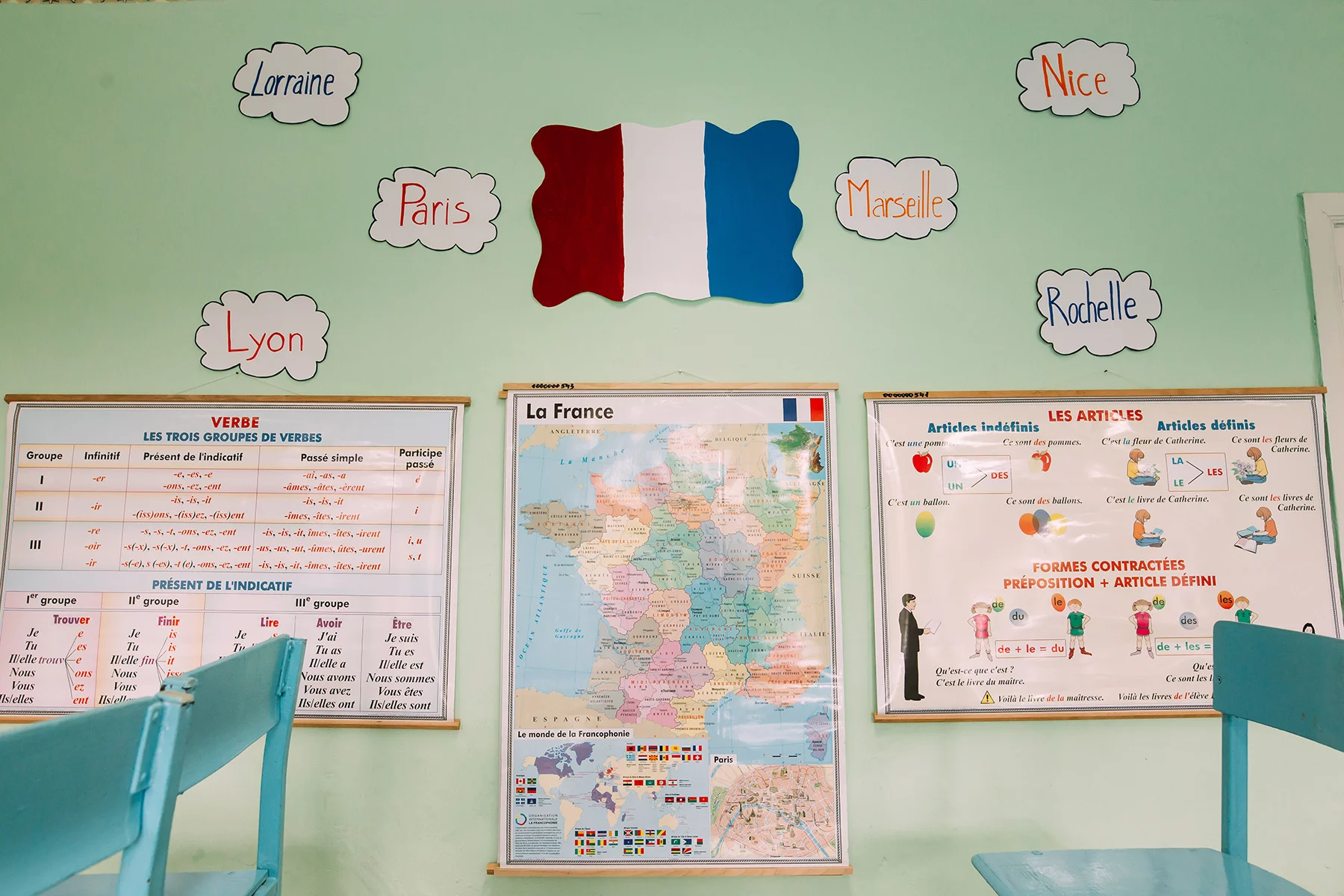If you’re living in France, you’ll probably want to keep up with national and local news, either in English or in French. Tuning into local radio shows and current affairs podcasts plus reading newspapers and magazines is also a great way to improve your language skills and get to know the country and its culture.
To help you get started on the news in France, read more about the following topics:
- The media in France
- Where to get the news in English in France
- Newspapers and magazines in France
- TV and radio news channels in France
- News websites and podcasts to learn French
- Social media news sources in France
- Alternative news and citizen journalism in France
- News sources to avoid in France
- Tips on getting reliable news in France
- Useful resources
Ground News
Get every side of the story with Ground News, the biggest source for breaking news around the world. This news aggregator lets you compare reporting on the same stories. Use data-driven media bias ratings to uncover political leanings and get the full picture. Stay informed on stories that matter with Ground News.
The media in France
In France, television remains the most popular way of accessing the news. Online media is growing in popularity, coming in second behind TV. And like in many countries, printed newspapers continue to decline in popularity with French consumers.
France’s media landscape is characterized by a mix of public and private ownership. The flagship network, TF1, is privately-owned. However, the French public broadcaster, France Télévisions, is funded through a TV license fee and advertising revenue.

Nonetheless, major global organizations have highlighted the problem that the media sector in France is largely controlled by a few billionaires. This has led to a lack of transparency and increasing complexity in the media ownership structure.
Despite this concentration, there is a degree of diversity in the media landscape. Different media outlets cater to different political leanings and the French media landscape is fragmented along these lines.
The main regulatory body for TV and radio content in France is Arcom. This agency is responsible for tasks such as granting broadcasting licenses, making sure programs comply with legal obligations, and developing rules and codes of practice.
Where to get the news in English in France
English-language newspapers
Below are some of the most popular English-language newspapers in France:
- The Connexion: This newspaper is primarily aimed at British expats, covering topics like pensions, rent, and finances. However, it also has more general articles and information that would interest readers of other nationalities.
- Le Monde Diplomatique: the most widely-read French paper worldwide, with editions in 25 languages
- In larger towns and major cities, you’ll easily find major UK and US newspapers like The Times and The Wall Street Journal in a tabac or newspaper stand.
English-language news TV stations
If you’d rather get your news from TV, here are a few options:
- France24: this French channel broadcasts live news in several languages, including English
- Al Jazeera: although it has a focus on the Middle East and Africa, this reputable TV news channel provides international news in English
- To access more international channels, like BBC World, Sky News or CNN, you can purchase a TV and internet package
English-language news websites and social media
There are no internet restrictions on news media in France (aside from a Russian propaganda network). As such, you can access all the social media news that you would at home.

The following are some major European and France-focused news sources available in English:
- The Local France: This is a daily news source from France written in English by native English-speaking journalists. It provides readers with France’s latest news headlines, politics, sport, business, and features.
- Euronews: This European news network is based in Brussels and has a live YouTube channel. It provides the latest news in both English and French from a European perspective.
- Radio France Internationale (RFI): Broadcasting in 13 different languages, including English, RFI is a public radio station with global news coverage, available online around the world.
Newspapers and magazines in France
If you’re happy to test and improve your French comprehension skills, you can start reading news in the local language. It’s a great way to learn vocabulary and immerse yourself in the local culture. You’ll have topics of conversation at the ready when you get a chance to speak to locals.
With beginner’s French, you can start reading some of the free papers available at train stations and metro stops, like 20 Minutes or Le Parisien. These papers have very short articles and information about local events. As your French progresses, you can move on to the more extensive regional weeklies or national papers.
National French newspapers
National newspapers in France are split according to their political leaning. Most of these print papers also have a subscription version online.
Here is an overview of the major publications, roughly from left to right on the political scale, to help you decide what to start reading:
- L’Humanité: the official publication of the French Communist Party, it promotes left-wing ideals in France
- Libération: previously far-left, Libération currently reflects a social democratic position
- Le Monde: France’s most popular national daily newspaper and adopts a centre-left stance
- France Soir: a centrist paper that aims for an objective middle-ground on social and political issues
- La Croix: a daily French general-interest Roman Catholic newspaper, which is not explicitly left or right on major political issues but instead adopts the Church’s position
- Le Figaro: France’s second-most sold paper with a mostly conservative editorial line

Regional or local newspapers
Depending on where you live, here are some local and regional papers to find the most relevant news for you:
- Le Parisien (Paris)
- Le Progrès (Lyon, Rhône-Alpes)
- L’Alsace (Alsace)
- Le Bien Public (Burgundy)
- Corse Matin (Ajaccio, Corsica)
- La Dépêche (Midi-Pyrénées)
- L’Est Républicain (Lorraine and Franche-Comté)
- Midi Libre (Languedoc-Roussillon, Midi-Pyrénées)
- La Nouvelle République (Centre, Poitou-Charentes)
- La Voix du Nord (Nord, Pas de Calais)
- Sud Ouest (Charente, Charente-Maritime, Dordogne, Gers, Gironde, Landes, Lot-et-Garonne, and Pyrenees-Atlantiques)
- La Provence (Provence-Alpes-Côte d’Azur)
- Le Populaire (Haute-Vienne, Corrèze, Creuse)
- L’Écho Républicain (Eure-et-Loir, Yvelines, Loir-et-Cher)
- Le Journal de la Haute-Marne (Haute-Marne)
- Nice-Matin (Côte d’Azur)
Weekly or periodical newspapers or magazines
Depending on your interests, you’ll find a variety of periodicals and magazines in France. Some of the best-loved and most well-known are:
- L’Express: a popular weekly, centrist news magazine
- Le Nouvel Obs: known as the “L’Obs”, this left-wing magazine offers analysis on social events in France and abroad, along with articles on art, culture, and entertainment
- Courrier International: for news from around the world, with translated excerpts from over 900 international newspapers
- Le Point: a weekly political and notably conservative magazine published in Paris
- Le Canard enchaîné: France’s oldest and most popular satirical weekly
- Charlie Hebdo: a satirical paper with a tragic history, still publishing jokes, polemics, and cartoons

Specialist newspapers
Another fun way to upgrade your French skills is to read newspapers and magazines related to your hobbies and interests. You should find something for every taste in the newsstand. Some options include:
- L’Équipe: a newspaper is devoted almost exclusively to sport
- Les Echos: France’s top financial newspaper
- La Tribune: business-focused with in-depth articles about the economy, industry, banking, finance, stock exchange, employment, and more
- Beaux Arts: one of a number of magazines specializing in arts, museums, and exhibitions
- Elle: the world-famous magazine, focused on women’s issues and fashion
- GQ: this American men’s lifestyle publication has a French edition
- L’officiel des spectacles: for information on culture and outings of all kinds, for children and adults alike
- Science & Vie: Europe’s leading science magazine, covering issues related to health, innovation, pseudoscience, the environment, and more
- Socialter: a monthly magazine that focuses on major social and contemporary issues and alternative solutions
TV and radio news channels in France
Wherever you are in France, you’ll be able to access national and local radio as well as TV news. Regional TV news, however, may be part of a paid subscription package accessed through a system called TNT (Télévision Numérique Terrestre).
Much like with newspapers, the political leanings of French viewers and listeners are reflected in their choice of news channel. Recent studies (PDF) confirm this, with left-wing individuals consuming public television and radio news, while those on the right of the political spectrum reporting that they watch and listen to private news sources (TF1, BFM, and LCI).
National French TV and radio news
- TF1: Privatized in 1987, the most popular channel in France with news shows at 13:00 and 20:00
- France 2: State-owned and part of France Télévisions, also very popular, with news bulletins at 8:00, 13:00, and 20:00
- France Info: Also state-owned, this news channel is available on TV, online and as a dedicated radio channel
- ARTE: The Franco-German channel, also available online, has a daily news program, ARTE Journal, broadcast at 19:45, and a news magazine, 28 Minutes, that airs six days a week
- BFM TV: A 24-hour rolling news and weather channel and the most-watched news network in France.
- LCI (La chaîne info): Part of the TF1 group and the original rolling news channel in France, it is present across TV, radio, and YouTube
- CNews: Dubbed the “French Fox News”, owned by the tycoon billionaire Vincent Bolloré and deemed to have a heavy right-wing slant
- France Inter: Part of Radio France, this public radio channel is a generalist station with a focus on news, talk shows, and music programs

Regional or local TV and radio news
Whether you find yourself in the most remote corner of Brittany or one of France’s overseas territories, you’ll be able to access local news on the radio, online, or as part of your terrestrial or satellite TV package. For example:
- téléGrenoble: for news about Grenoble and the wider Isère region
- TV Breizh: with a focus on Breton language and culture, and covering the news from the five Breton departments
- TV7 Bordeaux: the local channel for Bordeaux and surroundings
- BFMTV Régions: this rolling news channel has local editions for Lyon, Lille, Paris, Marseille, Nice, and other locations
- Sud Radio: a generalist station that broadcasts news shows with a focus on the South of France
- France3 Régions: a public news source for regional news online
Specialist TV and radio channels
- LCP: a state-owned channel broadcasting news, live debates, and documentaries on the National Assembly and Parliament
- ARTE: a Franco-German cultural and film channel, available for free online, that includes documentaries and magazine shows on contemporary political and social issues
- France Culture: part of the Radio France public network, this channel has a broad cultural programming that includes historical, sociopolitical, philosophical, literary, and scientific debates, discussions and documentaries
- BFM Business: France’s most popular business news radio channel
- France24 Sports News: a major sports bulletin with daily updates on international sporting events
News websites and podcasts to learn French
Almost all of the French news sources mentioned above have websites, live-streaming, or podcast offshoots. However, if your French is still a work in progress, there are a few other options out there.
You may want to explore the following news sources as a way to slowly improve your French comprehension, day by day:
- RFI Journal en Français facile: a daily 10-minute podcast summarizing the day’s news in a simplified French, with transcripts online so you can read along as you listen
- News in Slow French: news content provided at a slower pace to help all learners, with different topics and difficulty levels, as well as grammar and expression guides
- InnerFrench Podcast: a great resource to learn French naturally through a wide variety of interesting topics, including French politics, history and economics
Social media news sources in France
A 2019 report found that only one-third of French adults get their daily news through social media. Instead, a popular way of getting the news in France is through mobile apps, including the Mediapart, Le Monde Diplomatique, Radio France, and the France.tv app.
Nonetheless, social media platforms like Snapchat and TikTok have played a crucial role in breaking major news stories in the past, especially linked to police violence. As a result, some platforms were blamed for facilitating riots, and the government even threatened to cut off these social media networks during periods of social unrest.
Alternative news and citizen journalism in France
In the past few decades, new forms of internet journalism, including citizen journalism, have expanded in France (research paper, PDF). These sources can provide a different approach at a time when the credibility and objectivity of traditional media are under scrutiny.

Some good sources of alternative news include:
- AgoraVox: launched in 2005 and publishing citizen journalism with the motto that “every citizen is a reporter”
- Mediapart: a highly reputable online source of investigative journalism with no commercial partnerships or advertising, surviving solely off subscription fees
- The Conversation: where journalists collaborate with academics and researchers to provide research-backed analysis of current affairs and other news topics
- The satirical news outlets Charlie Hebdo and Le Canard enchaîné
News sources to avoid in France
There’s probably no such thing as an unbiased news source. Therefore, it’s a good idea to approach all news outlets with caution and regularly consult various sources. As previously discussed, most French people tend to avoid consuming news through social media, and with good reason.
Most of these platforms still lack the safeguards to reliably stem the spread of fake news and verify whether sources are credible. Frequently consuming news through Facebook and YouTube, for example, is more likely to intensify your belief in conspiracy theories.
Several influential news sources were accused of spreading false information during the COVID pandemic. These included:
- FranceSoir.fr
- Fr.sputniknews.com
- Francais.rt.com
- TVlibertes.com
- Lecourrier-du-soir.com
- Alnas.fr
- Lesmoutonsrebelles.com
- Breizh-info.com
- Planetes360.fr
- LeLibrePenseur.org
Tips on getting reliable news in France
Sometimes getting reliable news in France is as easy as using a news aggregator, like Grounded News, that actually compares the same story from a variety of sources for you.

Otherwise, you can take a look at the following France-specific fact-checking and fake news-dispelling online platforms:
- AFP Factuel: the Agence France Presse fact-checking and news debunking service, available in English
- Les décodeurs du Monde: an online section of the Le Monde newspaper that verifies information, with a search engine called Décodex
- Fake Off: a section of the 20 Minutes news website launched to combat misinformation on social media and run in partnership with Facebook, where you can also report seemingly false information
- CheckNews: Libération’s fact-checking service where readers ask questions and the editorial team responds
- Le Vrai du Faux: a fact-checking daily segment on France Info radio that scrutinizes information and debunks online hoaxes
- Désintox: short hoax-busting videos broadcast by ARTE covering broad social and political themes and also available in English
- Hoaxbuster: a collaborative platform against online disinformation with detailed analysis and references to reliable sources
- The Conversation: a website with a host of interesting articles to delve deeper into the topic of fake news
Useful resources
- Media Landscapes – for more information on the media in France and elsewhere
- Arcom – the French audiovisual and digital communications regulatory authority
- European Digital Media Observatory – a research and fact-checking organization, communicating on fake news and media literacy in Europe








